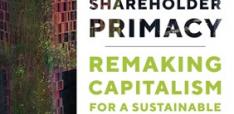Locals Boycott the G7 as Economically Damaging
Normal
0
false
false
false
EN-US
JA
X-NONE
/* Style Definitions */
table.MsoNormalTable
{mso-style-name:"Table Normal";
mso-tstyle-rowband-size:0;
mso-tstyle-colband-size:0;
mso-style-noshow:yes;
mso-style-priority:99;
mso-style-parent:"";
mso-padding-alt:0cm 5.4pt 0cm 5.4pt;
mso-para-margin:0cm;
mso-para-margin-bottom:.0001pt;
mso-pagination:widow-orphan;
font-size:12.0pt;
font-family:"Cambria",serif;
mso-ascii-font-family:Cambria;
mso-ascii-theme-font:minor-latin;
mso-hansi-font-family:Cambria;
mso-hansi-theme-font:minor-latin;
mso-ansi-language:EN-US;
mso-fareast-language:EN-US;}
This post represents the first in a series from the ongoing G7 summit being covered on the ground by the Global Leadership Initiative's team. Please check in regularly to keep up to date with the latest news and analysis from the summit.
Media Centre – G7 Summit. Today is the start of the Group of Seven (G7). As has become a tradition with G7/8 meetings since the 1999 anti-WTO protests in Seattle, this G7 is being held in a remote location that was picked specifically to highlight the natural beauty of the host country (remember Gleneagles in 2005 and Toyaka in Japan 2008). For this G7, Angela Merkel picked the grand hotel in Schloss Elmau, which sits high in the Bavarian Alps. In line with other recent G7 summits, the media centre is purposely set-up a few miles from the summit hotel for security reasons. This year, the media is located in a small ski-village of 26,700 people called Garmisch-Partenkirchen.
One would think that having 12,000 security personnel, 3000-4000 protesters (who signed a peace agreement with the village mayor) and 4000 members of the media in Garmisch-Partenkirchen would represent a huge boost to the local economy. Logic would suggest that security teams would need to eat, protesters would still need provisions, and the media would fill local establishments with well-paid punters seeking to try the local fare.
However, as members of the Global Leadership Initiative discovered yesterday afternoon as we sought to eat some local Bratwurst, the village is not thriving as a result of the G7 influx. A local tavern owner told us that he was unable to serve us because many businesses have boycotted the G7 during the summit. ‘The G7 doesn´t bring any economic benefits whilst imposing major costs and restrictions’, lambasts one of the many restaurant owners who decided to have their Bavarian Gasthofs closed during the summit. The source of friction comes from the International Media Centre located in the town’s Olympic stadium, where all staff, journalists and organizers are provided with free food, drinks, entertainment and football coverage. As a result, thousands of journalists are not spending money in the village, opting to take advantage of the freebies. In addition, the security personnel are provided for separately and are not frequenting local businesses.
Another upset member of the public stated, ‘the majority of the 400 million euro budget ends in pockets of the security forces and the Schloss-Elmau hotel owner, whilst the locals experience little benefit from this investment.’ Put simply, locating summits in authentic natural surrounding far away from the capitals has been difficult to swallow for the community who host these events.
The fact that many local businesses in the village have boycotted their own G7 suggests that there should be a serious rethink about the economic damage that can result from hosting summits in remote locations. As also reported by Bloomberg, the local economy around Garmisch-Partenkirchen is down by half during the weeks preceding the G7 due to the fact that roads were closed and tourist scared off by the thought of protests. Given the village’s immense popularity amongst hikers, climbers, sportsmen and mountain lovers across Germany, the opportunity costs of keeping local businesses closed to paying customers during the G7 cannot be ignored. For this reason it might be useful to remind the G7 leaders of the saying ‘Think Global, Act Local’.
The G7 team: Garrett Wallace Brown, Hugo Dobson, Mihaela Gruia, Dominik Hatiar, Lucy Pedrick and Greg Stiles – Global Leadership Initiative, University of Sheffield. For more information on the Global Leadership Initiative and to keep up to date please click here.


